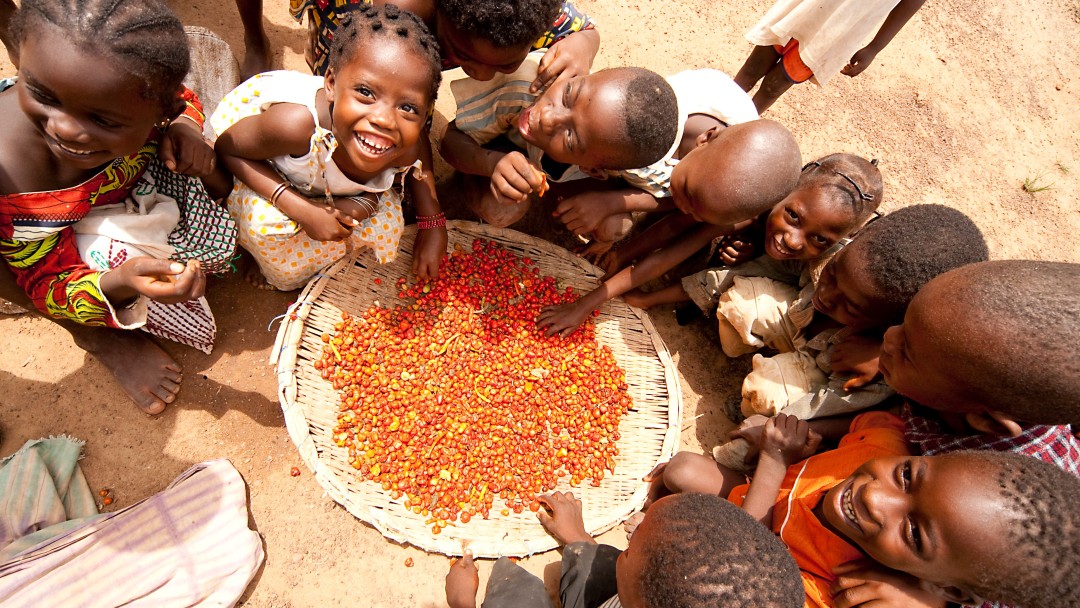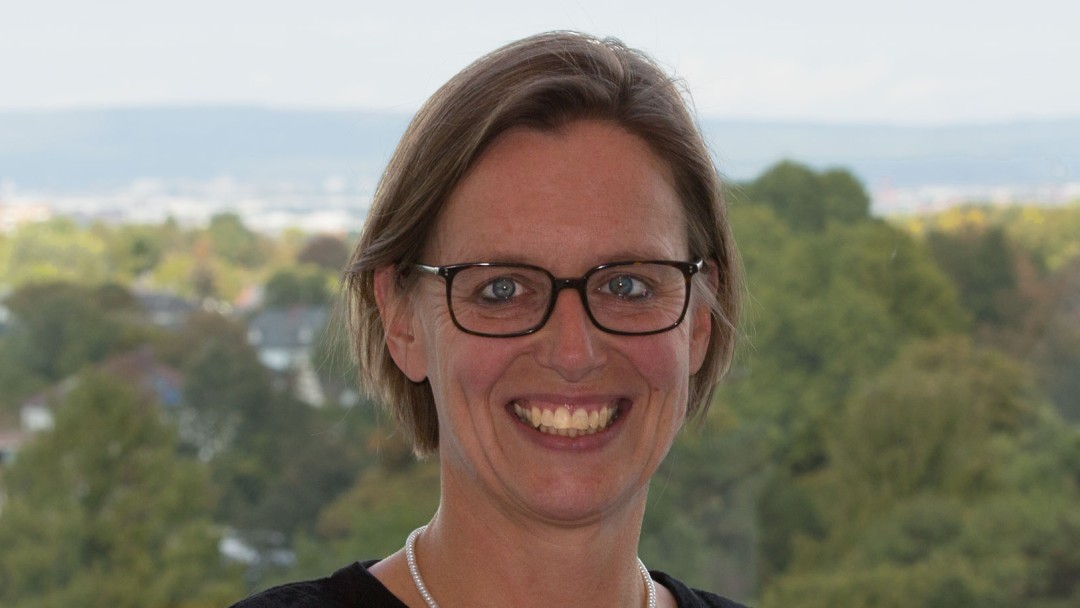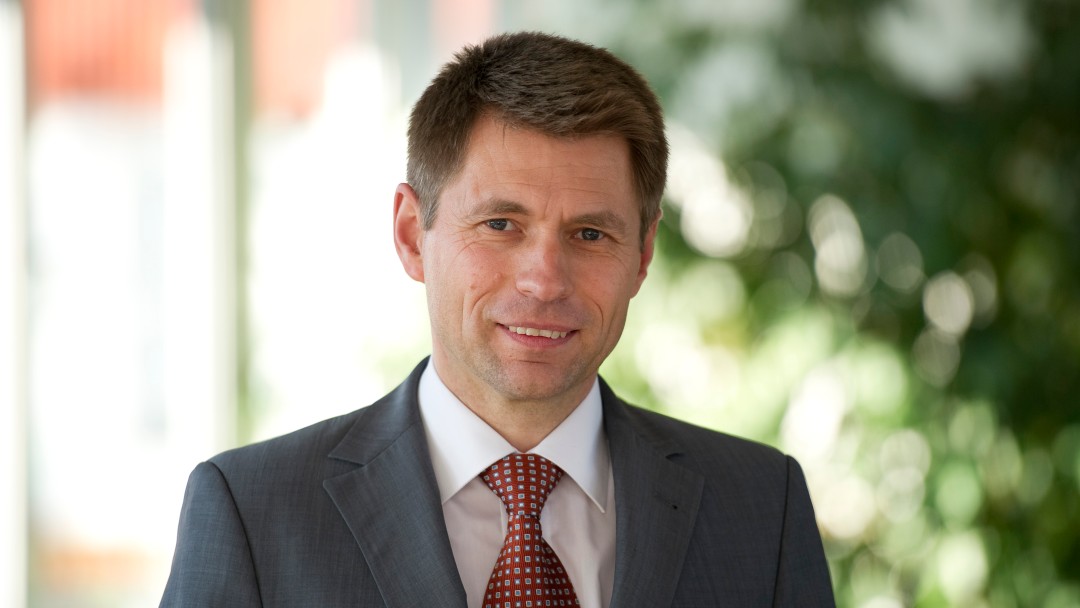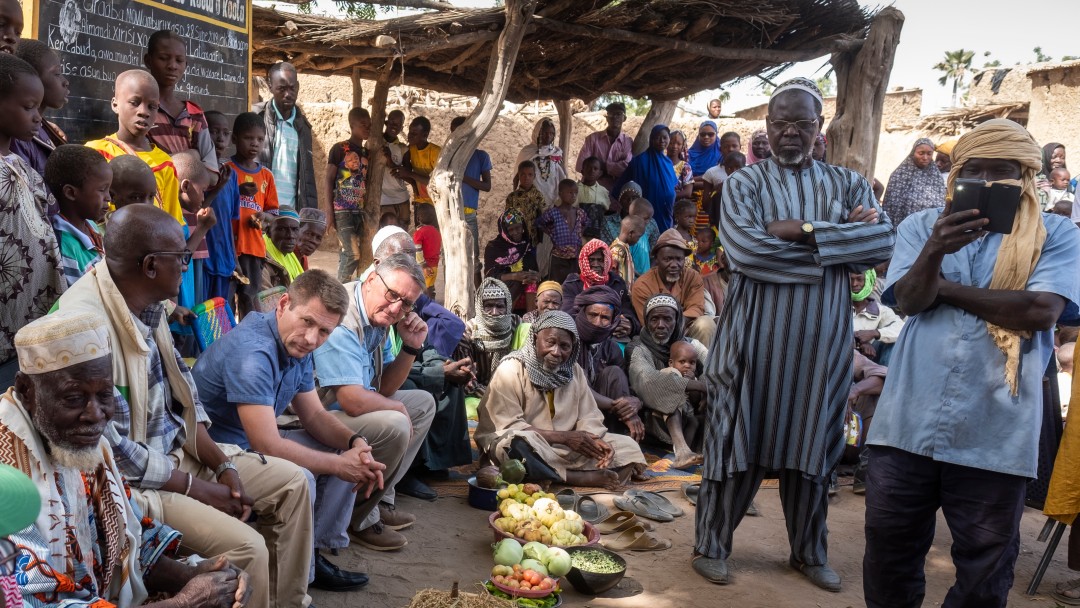News from 2020-01-16 / KfW Development Bank
“More efforts are needed to eradicate hunger.”
Barbara Schnell, KfW Head of Department, and Matthias Mogge, Secretary-General of Welthungerhilfe, on the odds of reaching the goal of “Zero Hunger”.

Ms Schnell, the key word associated with SDG 2 is “Zero Hunger”. The goal is for global hunger to be eliminated by 2030. Today there are still around 820 million people going hungry and around two billion who are malnourished. Is the goal realistic?
Schnell: The goal is very ambitious. Since 2015, the year when the SDGs were adopted, the number of people suffering from hunger has risen again by almost 40 million people. In 2015 this figure was still at around 785 million people. The main reasons are war, crises and climate change.
The African countries are particularly hard hit by the latest increase. The number of malnourished people has also stagnated for many years. To truly eradicate hunger will require an immense effort by the international community.
How do you see this, Mr Mogge?
Mogge: It is important to stick to this goal and pursue it resolutely. We are not on track today to achieve the goal, so efforts must be stepped up. But the fight against hunger is complex, and there are no simple recipes. Good governance is needed in the countries of the Global South, human rights must be respected, many conflicts can only be resolved at a political level and sustainability is one of the most important issues of the future in the fight against hunger and poverty.
But it seems that the world is becoming more and more unstable: wars and conflicts continue, climate change is accelerating. Is the fight against hunger a feat of Sisyphean proportions?
Schnell: The impacts of conflicts and climate change mainly affect poor sections of the population. They lack the means and methods to adapt to these changes – they therefore suffer disproportionately. This exacerbates problems like inequality, poverty and hunger. If hunger is to be effectively tackled, political and economic stability and climate change mitigation must therefore be pursued. Projects that support adaptation to climate change also contribute to food security.

Mr Mogge, an organisation like Welthungerhilfe can certainly promote rural development and food security, but it can hardly provide political stability and fight climate change, can it?
Mogge: Indeed, the general conditions for political stability, social justice or economic development must be created by the governments themselves or by the international community. The wars in Syria or Yemen require diplomatic solutions. But our work on the ground can give people strategies or tools to improve their living conditions and prepare for the crises of the future. And we help them to find and raise a voice vis-à-vis their own government.
Ms Schnell, it sounds absurd, but most people who go hungry live in rural areas and grow their own food. Why is hunger so widespread particularly in rural areas?
Schnell: It’s not really that absurd. Around the world, 80% of the poor population, who are particularly affected by hunger and malnutrition, live in rural areas. 65% of the poor work in agriculture, and in Sub-Saharan Africa the figure is over 75%. However, agricultural productivity and food production are often limited because farmland is overused and soil quality deteriorates.
Mogge: In addition, hunger and malnutrition often have a female face. Women in particular traditionally work in the fields, fetch water and prepare the meals for the families, but are the last to eat. The development of local processing capabilities and regional supply chains is important to generate new income opportunities in rural areas. Women also benefit from this. Better infrastructure also helps to prevent post-harvest losses, which are considerable.
The fight against hunger also has to keep pace with population growth. In Africa, where most people are already suffering from hunger today, the population will double to 2.5 billion people by 2050. Development Minister Gerd Müller has described this in visual terms: will the “stork or the plough win”? What role does family planning play in the fight against hunger?
Schnell: This is indeed a problem, because as the population grows, the productive per capita area decreases. The farmland per capita in Africa today is just under 0.2 hectares. If the population doubles, it will only be 0.1 hectares in 2050. This would then fall short of the minimum area of 0.14 hectares that the UN Food and Agriculture Organisation (FAO) defines as necessary to feed one person. Moreover, the overuse of productive land will continue to increase unless the rural and agricultural development of the countries is significantly improved. This would make hunger even worse. It therefore clearly contributes to fighting hunger by slowing down population growth through better family planning.
Mr Mogge, you yourself worked and lived in Africa for quite some time. Did you feel the effects of population growth?
Mogge: I have seen how in Ethiopia or Rwanda, for example, young people are no longer able to secure their livelihood through farming because the plots are simply too small. What we see in our project work is that education and training are important elements in changing the birth rate. Every additional year of schooling is important for girls. Gender equality also plays an important role overall. Declining birth rates are also a reflection of options and the possibility of having a choice. This begins with the development of social protection systems and disease prevention and contraceptives.

What do national governments, for example in Africa, have to do to ensure food security for their populations?
Schnell: As I already mentioned, national governments have to do their utmost to ensure political and economic stability. Agricultural policy and trade agreements are extremely important for countries where agriculture is the primary economic sector. The expansion of social, health and education systems and infrastructure links to rural areas will continue to be crucial in the future in the fight against hunger, poverty and inequality on the African continent. In this context KfW supports the efforts of the partner countries on behalf of the German Federal Government.
While KfW cooperates with national governments, you, Mr Mogge, on the other hand, mostly work with local non-governmental organisations. What role do NGOs play in food security?
Mogge: Through our local partners and initiatives, we can work directly in the villages and communities to improve the living conditions of the people over the long term. On the one hand, we offer very concrete solutions for people's everyday lives, e.g. new irrigation and farming methods for regions susceptible to drought. On the other hand, through cooperatives or other associations at the lowest level, we create an organisational form for people to articulate their needs to local government bodies and call for change. Our work creates a kind of sounding board for the major political changes.
According to Development Minister Gerd Müller, in some African countries around 50 per cent of the harvest is lost because it is not stored properly. What can be done to fix this problem?
Schnell: It is true that most food losses in Africa occur during harvest, storage and transport. When it comes to storage, losses are usually due to mismanagement, unsuitable storage possibilities or a lack of infrastructure. Harvested crops stored outdoors can dry out or be washed away in heavy rain. KfW therefore supports the countries in creating infrastructure and protected storage facilities. This includes expanding roads to connect rural and urban regions and their markets.
Mogge: We complement each other in this respect in many countries. These are often simple measures such as the construction of solid storage facilities or training courses to produce new products from tomatoes or fruit varieties. But the issue of losses does not just occur in our project countries. We throw away tonnes of food every year because it does not meet the standards or preferences of consumers, thereby destroying valuable energy and raw materials.


Share page
To share the content of this page with your network, click on one of the icons below.
Note on data protection: When you share content, your personal data is transferred to the selected network.
Data protection
Alternatively, you can also copy the short link: https://www.kfw-entwicklungsbank.de/s/enzBWrMC.CJJB
Copy link Link copied